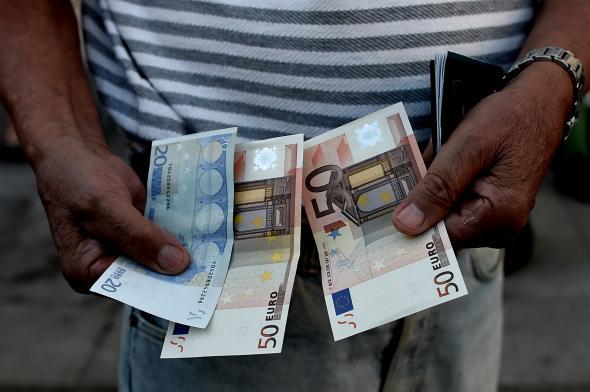It’s hard to get too excited given the number of deadlines Greece has blown through already in its fraught negotiations with its creditors, but the struggling country has been given until Sunday to reach an agreement on paying back its bailout. “The final deadline ends this week,” stated European Council President Donald Tusk ahead of an emergency summit meeting on Sunday, which Prime Minister Matteo Renzi of Italy has said will be the “last meeting about Greece.”
Prime Minister Alexis Tsipras’ government has drawn up a set of proposed economic reforms and spending cuts, which its parliament is due to vote on this Friday. According to the Financial Times, the proposal “includes increases in value added tax and savings from public pensions demanded by creditors.”
The markets seem to believe a deal is still reachable, with European stocks rising today on the news of the proposal, but it’s hard to avoid the conclusion that both sides are going through the motions.
German Finance Minister Wolfgang Schauble, who has made no secret of his belief that that Greece and the eurozone would be better off going their separate ways, has pronounced himself “skeptical” of the Greek proposal. Schauble also said that Greece’s underlying economic problems can’t be solved without a “haircut” of its international debts, but that “there cannot be a haircut because it would infringe the system of the European Union.” European Commission President Jean-Claude Juncker said for the first time Wednesday that “we have a Grexit scenario prepared in detail.”
Meanwhile, with banks closed for the last 10 days, Greeks are already gradually moving into a post-euro economy, with many businesses, particularly in the important tourist sector, deciding to accept Turkish lira and Bulgarian lev.
The majority of Greeks still want to keep the euro, and most European leaders would marginally prefer for it to stay in the eurozone, but at this point it’s hard to see a deal that will satisfy both European creditors and Tsipras’ supporters. However it turns out, it seems unlikely that this is the last meeting about Greece Renzi will have to attend.
